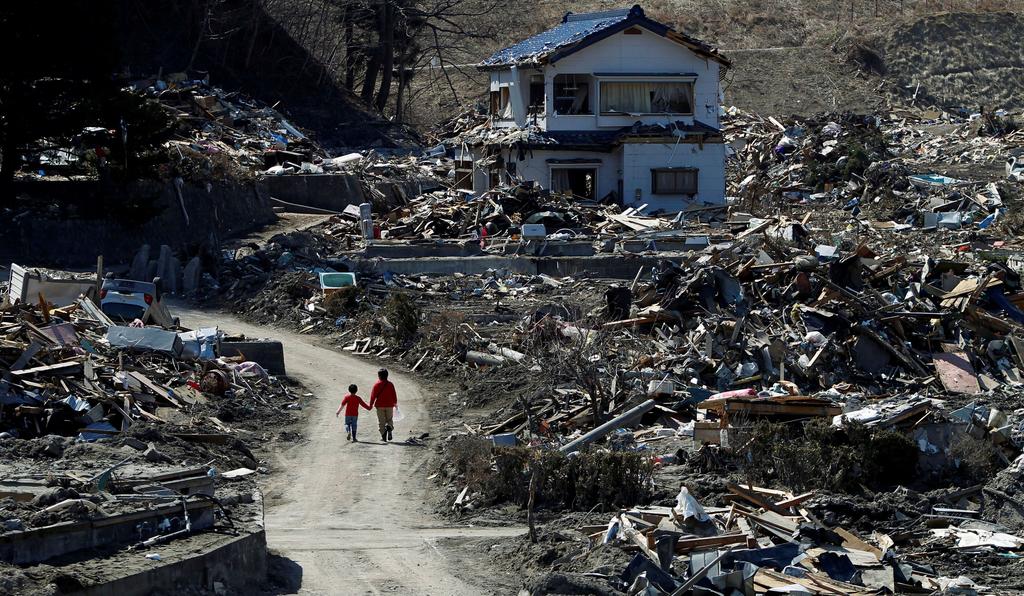Japan is paying for the huge cost of rebuilding areas hit by the March 2011 earthquake and tsunami with a special “solidarity” tax that could become a model to shoulder the much bigger spending needed to combat the coronavirus pandemic.
Households are bearing the brunt of the bill, paying an extra 2.1% in income tax for 25 years through 2037. For those with annual taxable income of 10 million yen ($92,000), that equates to an extra 37,000 yen a year.
While companies were supposed to pay an extra 10% tax for three years, they were off the hook after two years, which critics say was due in part to pressure from the powerful Keidanren business lobby amid global competition to lower corporate tax rates.
For politicians, it’s a model that works.
Unlike Japan’s unpopular sales tax that was doubled in two stages to 10% from 2014 to 2019, households won’t feel pain each time they shop. Branding it as a “solidarity” special tax helps convince voters the levy is for a collective good.
Ruling party lawmakers say tax hikes would be a last resort in footing the cost of combating COVID-19 that has so far topped 70 trillion yen - more than double the spending for post-quake and tsunami reconstruction.
But Finance Minister Taro Aso flagged the chance of another special tax once the economy emerges from the pandemic’s hit.
“Whenever a crisis hit, we took bold fiscal steps and the current generation strived to share the burden,” Aso told the lower house financial committee last month, suggesting debate over a tax hike cannot be avoided in the long run.
Japan spent 31.3 trillion yen on reconstruction from the earthquake and tsunami - roughly the size of Egypt’s economy - with another 1.6 trillion yen earmarked for the coming five years.
Revenues from the special tax paid for about 40% of the cost, around four-fifths of which was collected from households.
The additional tax of 2.1% was imposed on the amount of tax paid by individuals with the tax rates running as high as 45%, compared to the effective company tax rate of around 30%.
Some lawmakers, such as members of the Japanese Communist Party, criticise the special tax as imposing too much of a burden on households. But their voices are few.
The biggest opposition party has kept mum as the tax was rolled out under a government led by some of its current members. The ruling Liberal Democratic Party, known as pro-business, sees no merit in rocking the boat.
With Japan saddled with public debt 2.5 times the size of its economy, talk of a “post-pandemic solidarity tax” cannot be avoided, said Masahiro Kawai, a former finance ministry official and University of Tokyo professor who is now heading the Economic Research Institute for Northeast Asia.
“Such a tax would gain people’s understanding if they perceive it as necessary to protect their livelihood and human capital,” he said.
Others are sceptical. The pandemic has upended lives for almost the entire population, unlike March 2011, where people living in areas unaffected could rally to save those who faced devastation.
“It might be difficult to ask households to evenly share the burden this time, given a widening disparity between haves and have-nots since the coronavirus outbreak,” said Hosei University Professor Kazumasa Oguro.




















































